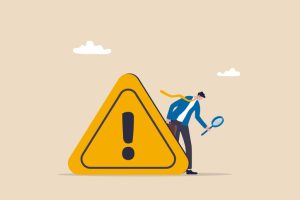 Your most valuable asset isn’t your real estate or the tech stocks you bought in the 90s that have done well. It isn’t even your business per se. Your most valuable asset is you — specifically your ability to run a profitable company and make money.
Your most valuable asset isn’t your real estate or the tech stocks you bought in the 90s that have done well. It isn’t even your business per se. Your most valuable asset is you — specifically your ability to run a profitable company and make money.
Are you protecting that asset from the risk that a disabling illness or accident might prevent you from working? If you don’t have disability income insurance, you’re not protected.
What Are the Odds?
People generally think the odds of becoming disabled are low. But the numbers say otherwise: More than one in four 20-year-old workers become disabled before reaching retirement age. Here’s another reality check: Serious accidents are not the leading cause of long-term disability; chronic conditions are. Muscle and bone disorders (such as a back disorder or joint or muscle pain) are responsible for more than one in four disabilities.
How Long Could You Go Without an Income?
Even a short period of disability could be devastating. The average group long-term disability claim lasts 2.6 years. Even if you have reserves you 3 could tap, your personal finances would take a hit. If and when you were able to start earning an income again, you might have to start all over.
What Would Happen to Your Business?
Your involvement is vital to your company’s financial success. If you’re unable to work, you might have to hire someone to take your place and borrow money to pay the bills until you’re back on the job. Bottom line? If you’re sidelined by a long disability, it could jeopardize the success or even the survival of your business.
What Can You Do?
Call your financial professional to review and discuss this important issue.
 Many businesses are founded on an original idea or design. Consider Xerox or IBM. Or look at products like Coke or popular published works such as the Harry Potter books. Where would they all be today if their idea or work had not been protected by intellectual property laws? For a growing business, securing the rights to an idea, products, or an identity can be a critical step in staving off the competition and in locking in future revenues.
Many businesses are founded on an original idea or design. Consider Xerox or IBM. Or look at products like Coke or popular published works such as the Harry Potter books. Where would they all be today if their idea or work had not been protected by intellectual property laws? For a growing business, securing the rights to an idea, products, or an identity can be a critical step in staving off the competition and in locking in future revenues. There are distinct pluses and minuses that small business owners should consider when looking for a loan.
There are distinct pluses and minuses that small business owners should consider when looking for a loan. Running a small business isn’t easy. You probably wouldn’t have it any other way. The ability to survive and thrive is a source of great pride for small business owners. So when a competitor moves in, especially a big one, it can feel like battle lines have been drawn.
Running a small business isn’t easy. You probably wouldn’t have it any other way. The ability to survive and thrive is a source of great pride for small business owners. So when a competitor moves in, especially a big one, it can feel like battle lines have been drawn. Fire, floods, hurricanes, earthquakes. When they happen, they can destroy buildings, equipment, and hard-to-replace data, and even injure or kill employees. It can take a business weeks, sometimes months, to resume operations after a disaster. Some businesses never recover. You can’t pin down the time or day when a disaster may strike your business. However, you can certainly prepare for one. Preparing for a disaster can minimize the potential damage and may protect you and your employees from harm.
Fire, floods, hurricanes, earthquakes. When they happen, they can destroy buildings, equipment, and hard-to-replace data, and even injure or kill employees. It can take a business weeks, sometimes months, to resume operations after a disaster. Some businesses never recover. You can’t pin down the time or day when a disaster may strike your business. However, you can certainly prepare for one. Preparing for a disaster can minimize the potential damage and may protect you and your employees from harm. Whether or not the number of people working from office buildings returns to pre-COVID levels, one thing appears certain: Remote and hybrid work models are here to stay. Business owners and other managers who rely on individuals who are working remotely full- or part-time are refining and elevating their management skills so that they get the best out of their employees.
Whether or not the number of people working from office buildings returns to pre-COVID levels, one thing appears certain: Remote and hybrid work models are here to stay. Business owners and other managers who rely on individuals who are working remotely full- or part-time are refining and elevating their management skills so that they get the best out of their employees.